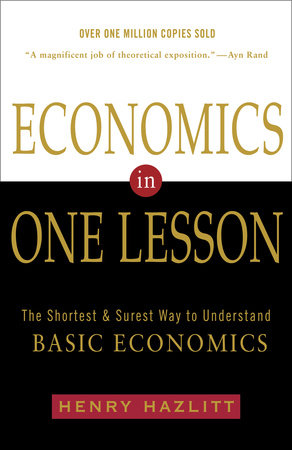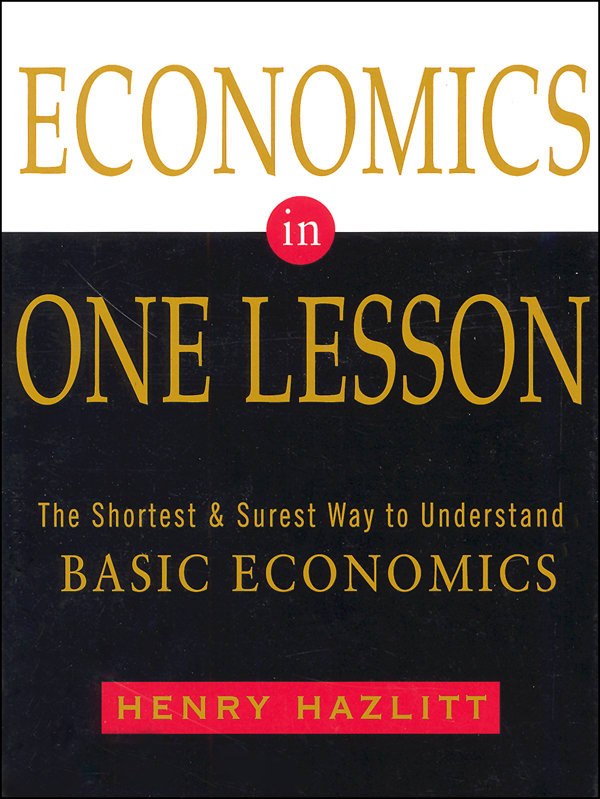Although this book was first printed in 1946, it has been reprinted regularly over the intervening years, attesting to its value. The newest edition was published in 1988. If students read this book and no others on economics, they would be prepared to deal with practical economic issues.
Instead of presenting dry economic theory, Hazlitt explains economic principles through stories and real-life illustrations. Despite the time elapsed since the original writing, the material is not out of date—we can pick up today's paper and find articles illustrating some of the same economic missteps Hazlitt has described.
His philosophy is pro-free market and favors limited-government intervention, although he is not a purist. One of the key themes of this book is to look beyond short-term interests to long-term consequences. Economic policies and decisions, according to Hazlitt, must be made with an eye to the long-term, which requires a deeper level of analysis of economic policy than we commonly see.
Some of the issues addressed are public works, taxes and their effect on production, tariffs, government bail-outs of industry, government price-fixing, minimum wage laws, and inflation. A chapter on rent control was added to the 1979 edition. Although the issues are specialized, together they illustrate a fairly broad view of economics. The penultimate chapter, entitled "The Lesson Restated," sums up economic principles. A final chapter, also added in 1979, is "The Lesson after Thirty Years." Hazlitt examines economic policy changes that occurred between 1946 and 1979, and reviews the downward path that the U.S. as well as other countries have followed.
Students should probably be working at junior and senior levels of high school before tackling this book. At that point they should have enough historical background as well as life experience to understand the issues addressed. Students might also need a separate reference book for definitions or fuller explanations of some topics, but otherwise this book serves as the foundation for a top-notch economics course.










